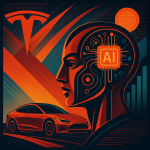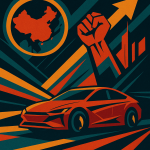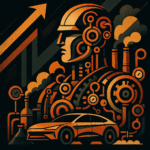Key Points
- On July 16, 2025, China’s State Council, led by Premier Li Qiang, addressed “irrational competition” in the NEV industry, signaling a shift from price wars to high-quality development.
- The government plans a 7-point playbook, including intensifying cost investigations, cracking down on production consistency, and ensuring major auto companies honor payment terms to suppliers.
- A key focus is to guide companies toward competing on technological innovation and superior quality, rather than unsustainable practices like selling at losses.
- The initiative also extends beyond NEVs, aiming to strengthen domestic consumption and improve fiscal accountability, indicating a broader economic strategy for China.

A new chapter is unfolding for China’s NEV competition, and it’s getting a major rewrite straight from the top.
If you’re an investor, founder, or just watching the space, this is a signal you can’t ignore.
Beijing is moving to shift the industry’s focus from a cutthroat, price-slashing battlefield to a race for high-quality development.
Let’s break down what went down and what it means for the future of the world’s largest EV market.
Why Beijing is Pumping the Brakes: Taming the Wild NEV Market
The core message from the State Council meeting is clear: the era of growth-at-all-costs in the NEV sector is over.
The government is stepping in to foster a healthier, more sustainable market.
The meeting emphasized a “balanced, comprehensive approach” to weed out the practices that could undermine the industry’s long-term health.
This is a direct response to a market that has become defined by fierce rivalry, often leading to unsustainable business practices.
The goal is to guide companies toward competing on what truly matters: technological innovation and superior quality.

Find Top Talent on China's Leading Networks
- Post Across China's Job Sites from $299 / role
- Qualified Applicant Bundles
- One Central Candidate Hub
Your First Job Post Use Checkout Code 'Fresh20'

The State Council’s 7-Point Playbook for a Healthier NEV Industry
So, how exactly does the government plan to regulate the market? The executive meeting laid out a clear, multi-pronged strategy.
Here’s the breakdown:
1. Cost Investigations & Price Monitoring
This is a big one.
The government plans to intensify cost investigations and price monitoring.
The takeaway: This is likely aimed at curbing extreme price wars. Regulators want to understand the unit economics of NEVs to prevent companies from selling at unsustainable losses just to grab market share.
2. Cracking Down on Production Consistency
There will be enhanced supervision and inspection of product manufacturing consistency.
The takeaway: This ensures that the car a customer receives is exactly the same high quality as the one reviewed and approved by regulators. It’s a push for reliability and quality control across the board.
3. Ensuring Big Players Pay Their Bills
The council is urging major automotive companies to honor their payment term commitments to their suppliers.
The takeaway: This addresses a massive pain point in the supply chain. For smaller suppliers, getting paid on time by auto giants is a matter of survival. This move aims to stabilize the entire ecosystem.
4. Building Long-Term Fair Competition Rules
The plan includes establishing robust long-term mechanisms to regulate competition.
The takeaway: This isn’t a temporary fix. Beijing is looking to build a permanent framework for fair play, creating a more predictable and stable market for the long haul.
5. Promoting Industry Self-Regulation
The government is encouraging greater industry self-discipline among NEV manufacturers.
The takeaway: This is a call for the industry to police itself. Expect to see more collaborative efforts and codes of conduct emerge from industry associations.
6. Using Standards to Drive Upgrades
Officials want to maximize the role of industry standards in guiding technological advancements.
The takeaway: By setting higher standards for things like battery tech, safety, and software, the government can force the entire industry to level up, pushing innovation forward.
7. The Ultimate Goal: Innovation and Quality
Every measure is designed to guide enterprises to enhance their competitiveness through continuous technological innovation and superior product quality.
The takeaway: The message is simple: the best product wins, not the cheapest.

ExpatInvest China
Grow Your RMB in China:
- Invest Your RMB Locally
- Buy & Sell Online in CN¥
- No Lock-In Periods
- English Service & Data
- Start with Only ¥1,000

The Bigger Picture: It’s Not Just About Cars
- Strengthening Domestic Consumption: Actions launched to boost consumption, remove unreasonable spending restrictions, optimize policy for trading old for new consumer goods.
- Expanding Investment: Focus on new quality productive forces and emerging services.
- Fiscal Accountability: Review and rectification of fiscal issues from the 2024 central budget for greater transparency.
- Entry/Exit Regulations: Adoption of amendments to regulations concerning administration of entry and exit of foreigners.
The State Council meeting wasn’t solely focused on NEVs. The agenda revealed a broader strategy for China’s economy.
Boosting the Home-Court Advantage: Strengthening Domestic Consumption
A key topic was fortifying the domestic economic circulation.
This is a strategic move to ensure stable, long-term growth by relying more on China’s massive internal market. Key actions include:
- Launching specialized actions to boost consumption.
- Systematically removing unreasonable restrictions on household spending.
- Optimizing the policy for trading old consumer goods for new ones.
- Expanding investment in new quality productive forces and emerging services.
Cleaning House: A Crackdown on Fiscal Issues
The council also reviewed the audit and rectification of fiscal issues from the 2024 central budget.
This signals a push for greater accountability and transparency in government spending, which is crucial for maintaining public trust and executive efficiency.
Opening the Doors (With New Rules)
Finally, the meeting adopted the “Decision of the State Council on Amending the Regulations of the People’s Republic of China on Administration of Entry and Exit of Foreigners (Draft).”
While details are forthcoming, this is something for international business leaders and investors to watch closely.

Resume Captain
Your AI Career Toolkit:
- AI Resume Optimization
- Custom Cover Letters
- LinkedIn Profile Boost
- Interview Question Prep
- Salary Negotiation Agent

The Bottom Line for Investors and Founders
The State Council’s intervention is a landmark moment for the NEV industry.
It’s a clear signal that the “Wild West” phase is ending.
For companies in the space, the path forward is no longer about surviving a price war but about building a defensible moat through technology, quality, and brand.
Investors should look for companies with strong R&D pipelines, solid supply chain relationships, and a clear path to profitability—not just rapid market share growth.
This strategic pivot marks a new, more mature phase for China’s NEV competition, driven by sustainable growth and true innovation.


![Explosion in Chinese Assets: HK Stocks & Concept Shares Roar Higher [FreshFromChina]](https://freshfromchina.com/wp-content/uploads/2025/05/Explosion-in-Chinese-Assets-HK-Stocks-Concept-Shares-Roar-Higher___FreshFromChina-150x150.png)



